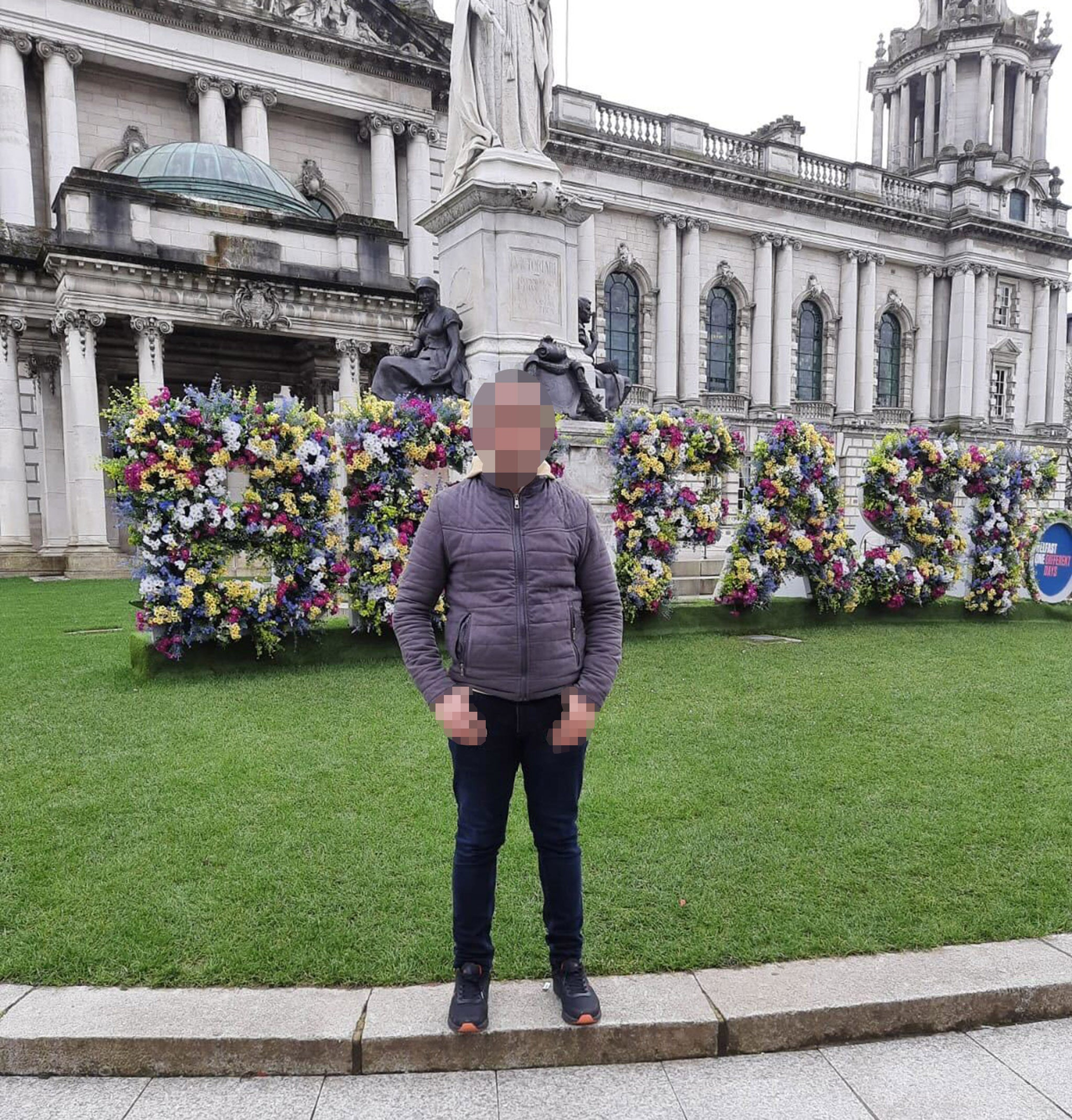
The first and so far only British Council teacher to be brought to safety in the UK under the government’s Afghan resettlement scheme has spoken of his relief, but urged politicians to help those left behind who face “real danger”.
The teacher, who fled Afghanistan when the Taliban started regaining control of the country in 2021, said he feared for the lives of more than 100 of his colleagues who are still waiting for help.
The former teacher arrived in the UK with his wife and baby daughter from Turkey at the end of March. He spoke to The Independent from his family’s new home in Belfast, saying: “We are safe here fortunately and we can now believe in our future and our children’s future. However, we are concerned about our families, friends and colleagues who are living inside Afghanistan and living an uncertain life.
“The accusation of being a British spy has been made against most of my colleagues. They have been accused that they are the real spies of the British government, and so if the Taliban captures them then their life will be in real danger,” he said.
It comes as The Independent launched a campaign calling on Rishi Sunak to support Afghan veterans who served alongside British forces after we revealed an Afghan pilot who came to the UK in a small boat is facing deportation to Rwanda.
Many British Council teachers are living in hiding in Afghanistan, with many struggling to get the documents needed to flee to neighbouring Pakistan.
Joe Seaton, a former deputy director at the British Council, said he knows of more than 100 teachers still waiting for relocation to the UK – both in Afghanistan and neighbouring countries. The British Council has estimated that there could be up to 200 in this situation.

The scheme to help the British Council contractors relocate to the UK was launched on 6 January 2022, but only the aforementioned teacher and his family have been brought to safety. The resettlement route will allow 1,500 people to come to the UK in the first year and is only open to British Council workers, GardaWorld contractors and Chevening Alumni.
The government’s general scheme for at-risk Afghans, the Afghan Citizens Resettlement Scheme, has resettled just 22 people since the Kabul evacuation.
The teacher described the past two years of his family’s life as a “struggle to survive”. He added: “Our life was very very difficult in Turkey. I was working as a busboy in a hotel and my salary was about $280 per month. We had to borrow money from friends and relatives for legal fees when our visa extension was denied. We did not know what our future might be; whether we will stay in Turkey or be deported to Afghanistan?
“Our past two years have been wasted as we were only struggling to survive. Now we are in the UK and I see my future is bright.”
CEO of the British Council, Scott McDonald, said: “We are delighted and relieved that our former colleagues and their families are starting to arrive in the UK. While we welcome this good news, we remain deeply concerned about those who are still in Afghanistan.”

He added that while a number of former contractors and their families have been informed that they are eligible for relocation, “urgent action must now be taken to ensure they are granted safe passage to countries neighbouring Afghanistan”.
A significant number of teachers are still waiting on the outcome of their relocation applications, he added.
Tory MP John Baron, chair of the British Council All Party Parliamentary Group, said: “It is excellent news that the first teacher and his family have now arrived in the UK. However, many still remain in Afghanistan unable to obtain the necessary visa and paperwork to enter a third country. A travel agent is needed to obtain these documents but this costs money which many contractors do not have.”
Mr Seaton added: “While it is encouraging that one former British Council teacher has at last made it to safety in the UK, serious concerns exist about the safety of all the others still in Afghanistan.
“Their work teaching UK values for the British Council made them all targets of Taliban hostility and, as a result, they have been living in hiding, with a number suffering violence at the hands of the Taliban. They were all eligible for the Arap scheme from the start, but were unfairly excluded.”
A government spokesperson said: “We continue to work hard to resettle people from Afghanistan. Under the first year of ACRS pathway 3, we will offer resettlement to up to 1,500 people including British Council contractors at risk.
“Since April 2021, around 24,500 people have been brought to safety, including thousands of Afghans who served the UK and others identified as at-risk, such as campaigners for women’s rights, human rights defenders and Chevening scholars.”







